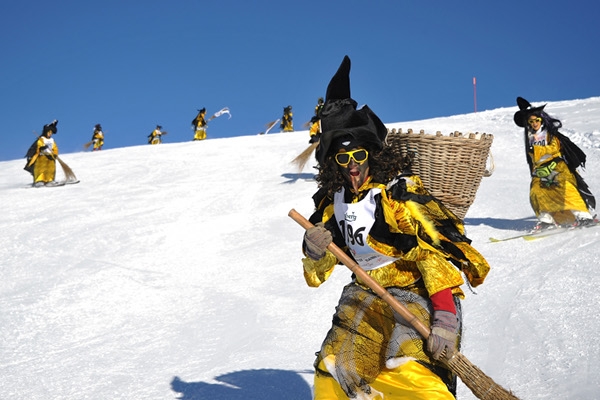The fanfaronade for Ian McEwan’s latest book Sweet Tooth, a seventies spy novel tantalisingly based on his own life and featuring a cameo from Martin Amis, has begun ahead of its publication date tomorrow. Two puff interviews (one in the Guardian and a slightly sexier one in the Daily Mail) with McEwan managed to include everything we already know about him. The first review in the Financial Times promises a ‘rich and enjoyable’ read. Wonderful.
Given we’ll be hearing quite enough about the book (which wasn’t–gasp–nominated for the Booker Prize) we’ll look at another big beast captured in the literary pages this week: Jeanette Winterson. The Daylight Gate is the second novel in the Hammer literary imprint series after Helen Dunmore’s The Greatcoat.
In her account of the Pendle witch trials, which claimed the lives of ten men and women four hundred years ago exactly, Winterson takes no prisoners. Grim descriptions of talking severed heads sit side-by-side facts gleaned from the surviving account of the clerk to the court, Thomas Potts, The Wonderfull Discoverie of Witches in the Countie of Lancaster, published in 1613. Despite calling it ‘angry, red in tooth and claw, bloody, suppurating, replete with an agony that is startlingly physical, not mental or emotional’, Matthew Dennison in The Times thought the quality of the prose ensured it never descended into ‘shilling-shocker territory.’
Sarah Hall in the Guardian agreed that Winterson had successfully integrated any double, double toil and trouble clichés. However she thought the real horror emanated from the historical realism: ‘most grotesque and curdling are the visceral depictions of early 17th-century Britain – the squalor, inequality and religious eugenics.’
But Stephanie Merrit in the Observer remained unconvinced – ‘social realism sits uneasily alongside the supernatural elements’ – and Diane Purkiss, in the Independent, agreed. The fellow at Keble College, Oxford, thought that in giving ‘the witches real magical capabilities and a real Devil for their dealings’, Winterson distracts from the brutal truth: the victims are innocent. Purkiss also gamely tried to describe how being accused and framed for witchcraft in 17th century Lancashire might feel like: ‘a hideous combination of being stalked and having your voicemail hacked by the government.’
Ahh, got it.
In his Sunday Times review, David Grylls managed to justify the presence of the supernatural, referring to Winterson’s upbringing by Pentacostalists and details in her memoir, Why Be Happy When You Could Be Normal?, and semi-autobiographical Oranges Are Not the Only Fruit. ‘Locked up, starved and beaten’ on account of her sexuality, and ‘”exorcised” to expel the demon that possessed her’, the reality of her childhood filters through into the Hammer horror project. But although The Daylight Gate may tap into Winterson’s ‘key themes (seeking identity, learning to love, dissolving boundaries, defying authority)’, her fans risk being disappointed. According to Grylls, the novel lacks one vital element: ‘her trademark black humour’.
The Daylight Gate by Jeanette Winterson is published by Hammer (£9.99)






Comments